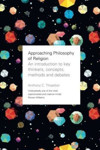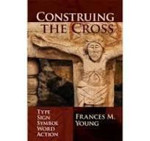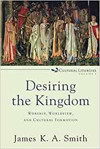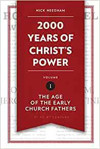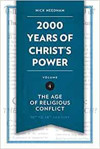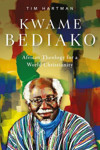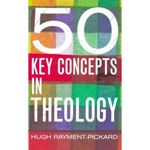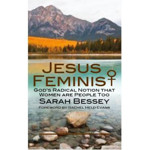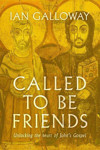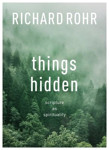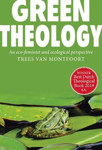Cookies help us deliver our services. By using our services, you agree to our use of cookies.
My Account
You have no items in your shopping cart.
Shopping Cart
No items added.
No items added.
Books of the Month
My Big Story Bible: Tom Wright
My Big Story Bible takes the adventure of reading a children's Bible to a new level. As you'd expect from Tom Wright, the narrative bursts with lively storytelling and a deep love for the original scriptures, while the vibrant illustrations on every page will delight young readers and help them to imaginatively understand the key events of the Bible.
£16.99
Jesus and the Powers: Tom Wright
Christian Political Witness in an Age of Totalitarian Terror and Dysfunctional Democracies In Jesus and the Powers Tom Wright and Michael F. Bird join forces to address the pressing question: How can Christians engage with the turbulent politics of our times while remaining true to the teaching and example of Jesus?
£12.99
Doctrine, Theology & Ethics
Sort by
What's the Point of Theology?
We may be aware that theology is the study of the nature of God and of religious belief. But why should that matter to us? What’s the point of theology? In this wonderfully accessible book, renowned Christian theologian Alister McGrath explores just why theology is so important and what it can bring to our lives.
£10.99
Approaching Philosophy of Religion
An Introduction To Key Thinkers, Concepts, Methods And Debates
£16.99
Construing the Cross
In Construing the Cross, Frances Young traces the rich and varied ways in which the Cross of Christ was construed in the centuries before 'attonement theories' narrowed the categories.
£17.99
From the Shores of Silence: Conversations in Feminist Practical Theology
Feminist practical theology is bold in exploration of doctrinal themes in poetic and prayerful modes, characteristically collaborative and in search of alliances with other advocacy perspectives. In the UK, such commitments have been exemplified by Nicola Slee.
£30.00
Moment of Truth: Reflections on Incarnation & Resurrection
In this collection of seasonal reflections, Samuel Wells unpacks the substance of these key Christian doctrines, and explores their practical implications for living as Christians in the world:...
£12.99
Desiring the Kingdom
Malls, stadiums, and universities are actually liturgical structures that influence and shape our thoughts and affections. Humans--as Augustine noted--are "desiring agents," full of longings and passions; in brief, we are what we love.
£17.99
Finding The Treasure
Finding the Treasure highlights the wisdom, faith, and love that can be found in our estate churches and neighbourhoods, and the inspiration and challenges their insights present to the wider Church community.
£12.99
2000 Years of Christ's Power Vol 1: The Age of the Early Church Fathers
Every generation has an uncanny tendency to view themselves as more enlightened than those that have gone before. The Church certainly has made mistakes all through history – and yet, no insights which we possess would be possible without the efforts, and even some of the mistakes, of our ancestors.
£19.99
2000 Years of Christ's Power Vol 3: Renaissance And Reformation
The Renaissance was a reaction against the attitude of the Middle Ages. And the Reformation was the passionate, divisive argument that grew out of it. Catholics, Calvinists, Lutherans, Anabaptists – our present–day divisions were the front–page headlines of the Reformation.
£19.99
2000 Years of Christ's Power Vol 4: The Age of Religious Conflict
The Renaissance and Reformation were exciting times of learning and discovery – they pushed the boundaries of accepted thought. The repercussions of this, however, were that they left in their wake a period of universal uncertainty. The centuries–old status quo had been turned on its head. Nothing was stable anymore. Conflict ensued.
£19.99
Difficult Words of Jesus
As well as telling parables and stories, giving teachings on how to discern questions of ethics and human nature, and offering beatitudes for comfort and encouragement, Jesus also spoke words and flung insults that followers then and now have found difficult, to say the least.
£14.99
Kwame Bediako: African Theology
Kwame Bediako was one of the great African theologians of his generation. Challenging the assumption that Christianity is a Western religion, he presented a non-Western foundation for theological reflection, expanded the Christian theological imagination, and offered a path forward for post-Christendom theologies
£13.99
50 Key concepts in Theology
In fifty brilliant short essays one of the UK's liveliest young writers on religion introduces the key themes, movements and thinkers in theology.
£12.95
Jesus Feminist God's Radical
This loving yet fearless book urges today’s church to move beyond man-made restrictions and fully welcome women’s diverse voices and experiences. Sarah Bessey, through disarmingly intimate storytelling, tells how she grew to understand the story of God and the vastness of his work through women.
£10.99
Unbroken Thread, The
For millennia, philosophical, ethical and theological reflection was commonplace among the intellectually curious. But the wisdom that some of the greatest minds across the centuries continue to offer us remains routinely ignored in our modern pursuit of self-fulfilment, economic growth and technological advancement.
£12.99
Called To Be friends: Unlocking the heart of John's gospel
Is it really possible to accept Jesus' invitation and become a friend of God? To know God is one of humanity's deepest desires, but how can it happen? The author's narrative analysis breaks new ground, but Called to Be Friends is written for everyone, and unlocks this beloved Gospel in a fresh and accessible way.
£10.99
Things Hidden: Scripture as Spirituality
Sacred Scripture and Christian spirituality belong together. In this exploration of the central themes of Scripture, Richard Rohr transforms the written word, discovering in these ancient texts a new and vital meaning, relevant and essential to all believers.
£13.99
Dying to Get There: A vision of heaven to transform our lives on earth
Heaven. Do you look forward to it? Or do you secretly worry that somehow life there might not be quite as good as life here? Michael Williams inspires us to look forward to heaven in an enthusiastic and scripture based approach to this subject.
£8.99
Green Theology: An eco-feminist and ecumenical perspective
Trees Van Montfoort demonstrates that ecological theology is not a sub-discipline of theology but a rediscovery of theology, focused not only on God and people, but all of creation. Drawing on the perspectives of eco-theologians from around the world, this is a ground-breaking book that redefines the scope of theology for a world in urgent need of answers.
£19.99
Bible: A Story that Makes Sense of Life
Join Andrew Ollerton as he explores the storyline of Scripture, connecting six major biblical events with six definitive human needs: for meaning, freedom, peace, community, love and for an ultimate home, in short, digestible chapters.
£10.99







